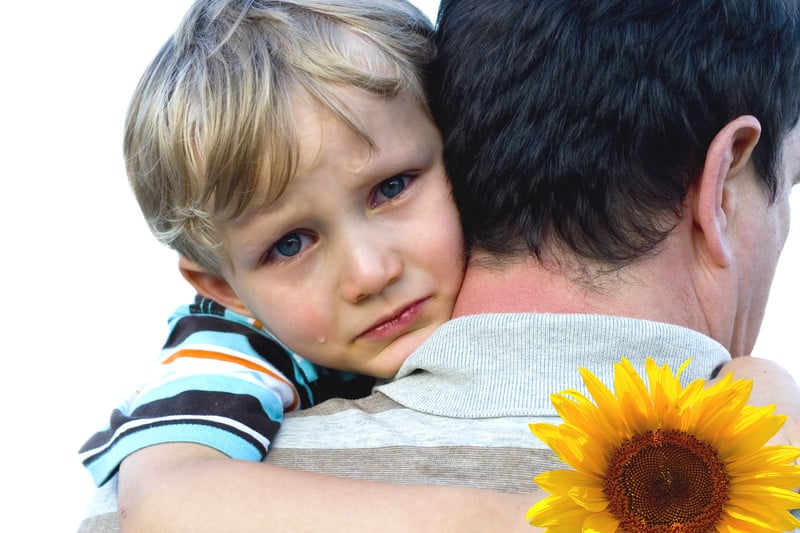While parents hope that their children will make it through their childhood years without experiencing the pain and confusion that accompanies the loss of a family member, friend, or neighbor, sometimes the inevitable happens, and we struggle with how to speak with our little ones about death. Knowing how to speak to your children about what has happened, and what they’re feeling, can make a big difference when helping them through the process of grieving and loss.
Don’t Be Afraid to Communicate
It’s tempting to avoid the subject of a death of a friend or family member, hoping that your child will accept the loss and move on to the everyday business of play, learning, and new experiences. But children are more aware of what is going on around them than we give them credit for. They may have strong feelings about the loss of a grandparent, questions about the passing of a neighbor, or confusion about why loss has affected a nearby family. Don’t hesitate to communicate with them when necessary, as your silence can be interpreted by young children as fear or tension concerning the subject of death. But remember to moderate your response. Don’t overwhelm your child with information, but be prepared to answer her questions when they arise.
You Don’t Need to Have All of the Answers
You’re mom and dad. You know where the cookies are, you taught your young child to eat with a fork, and you can explain the difference between night and day and hot and cold. Your child expects you to know it all. But when it comes to death, you yourself may feel some confusion. Don’t be afraid to tell your child “I don’t know” when you are truly grappling with an answer about death. This will introduce your child to the truth that adults don’t always have the answers, and your child may actually feel more comfortable knowing that he isn’t the only one who experiences a feeling of uncertainty.
Remember that Children Process Differently From You
A child can’t handle a long speech about the nature of life, death, and loss. Keep your answers and explanations simple and direct. And remember that when your child listens, stays quiet, and goes back to playing, that may not be the end of her emotional process. Check in with her later to make sure she understands what you’ve discussed, and ask if she has any questions. Speak with your daycare or preschool teachers about how your child is coping with a recent loss, and let them know what you’ve communicated to her. That way, your childcare providers will know how to handle questions and feelings as they arise.
As childcare providers, we never want to see the little ones we care for go through something as emotionally taxing as a loss of someone close to them. But we hope that we can act as a resource to your family if you and your child experience a loss, and we encourage you to work with us as a team when your child processes complex and difficult emotions.

